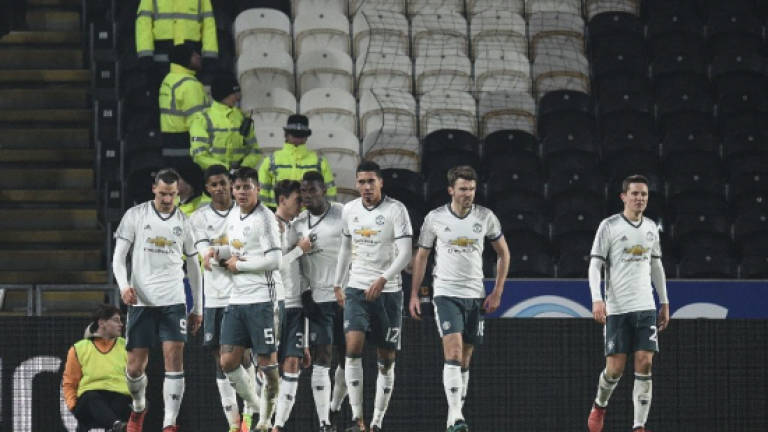Premier League stars tackle weak pound

LONDON: The Premier League's star imports are demanding huge pay rises as clubs' TV revenues rocket, Chinese teams entice them with mega wages – and the pound slumps ahead of Brexit.
Some players have secured bumper increases before Tuesday's transfer window deadline.
Liverpool's Brazilian playmaker Philippe Coutinho has signed a five-year contract worth between £150,000 (RM834,370) and £200,000 per week.
But Arsenal have yet to meet the demands of Mesut Ozil and Alexis Sanchez.
Reports suggest World Cup winner Ozil and Sanchez, twice winner of the Copa America, each want around £250,000 per week as they also factor in the cost of converting pounds into their native currencies.
This is significantly higher than their current weekly wages of about £135,000 and above Arsenal's improved offer said to be in the region of £200,000.
"While fans tend to associate player costs with transfer fees, it's important to note that transfer fees only account for around one-third of overall player costs," said Jake Cohen, a sports lawyer at Mills & Reeve.
"The majority of player costs go to wages," he said in an interview with AFP, adding that some players from abroad do in fact sign deals to be paid in currencies other than the pound.
To help offset the impact of currency fluctuations, Premier League clubs have sponsorship and other deals with foreign exchange trading groups that offer them preferential rates.
"Any company engaging in multinational transactions should be considering forex options, and football clubs are particularly exposed," said Cohen.
"Clubs often enter into contracts with international companies in foreign currencies, such as sponsorship deals and service contracts," he added.
Since Britain last year voted to exit the European Union, sterling has plunged by around 18% against the dollar and some 14% versus the euro.
"The weaker pound is rapidly chipping away at players' already staggering wages and ... agents are clearly seeking to capitalise on this new opportunity to draw more out of the clubs," said Craig Erlam, senior market analyst at Oanda trading group.
"They will also be very aware of the fact that (Premier League) clubs can afford to meet the higher terms due to the new TV deals," Erlam told AFP.
"I don't think it's a coincidence that some footballers who clearly came to England to chase the television money are now using China to try and broker a better deal," he added.
China has shot into the world's top five buyers of international football talent, a Fifa report said Friday, while British media is frequently linking Premier League players with potential moves to the country.
Power of TV
Cohen meanwhile pointed out that the falling pound would do little to help bridge a widening gap between TV incomes earned by England's top 20 clubs and the broadcasting revenues made by Europe's other top leagues, including in Spain.
"The falling pound may aid La Liga in principle, but it will take a lot more than a 10% or 15% improvement in the value of the euro compared to the pound, and which may or may not be permanent, to come close to matching, let alone supplanting the Premier League, at least with regards to revenue," he said.
Despite Manchester United's relative failure on the pitch last season, the club has topped Deloitte's Football Money League in terms of overall revenue for the first time in more than a decade.
United – who were last on top in the 2003/04 campaign – earned record total revenue of €689 million euros – and dislodged Champions League holders Real Madrid who have ruled the roost for 11 years.
The Premier League's clubs are currently enjoying the proceeds of a £5.14-billion UK television rights deal for three years up to 2019 – up a staggering 70% on the previous agreement.
Including overseas rights, the present Premier League broadcasting deal is worth £8.3 billion. — AFP